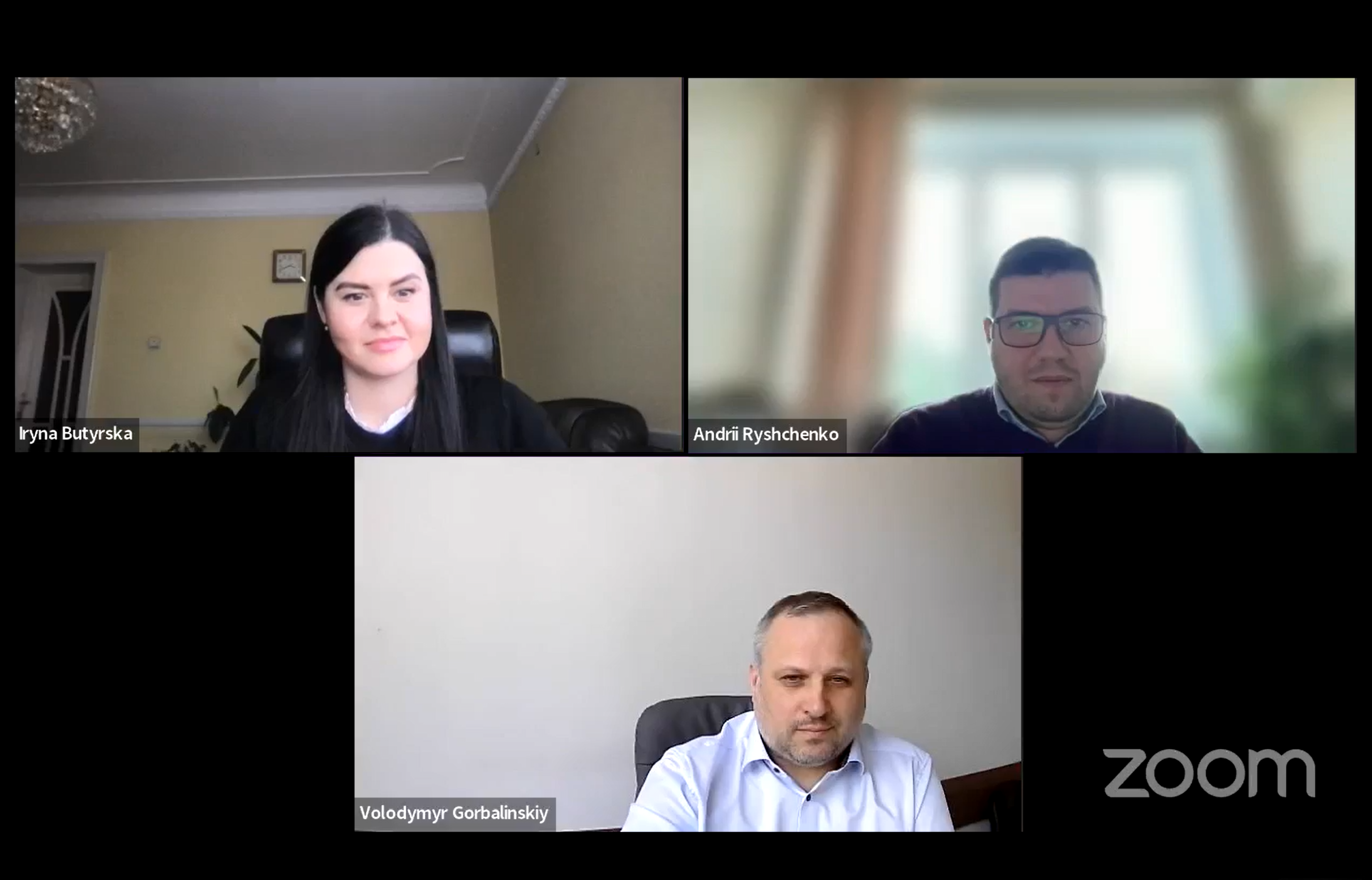RJRCs Discussed Jurisprudence in Mobilization-related Disputes
There was a discussion on jurisprudence in disputes related to mobilization and military service during “90 minutes about law” – online event organized by the Chernivtsi RJRC with the support of EU Project “Pravo-Justice”.

Briefly about the issues raised during the event:
What procedural issues do courts face when considering disputes related to mobilization and military service?
The biggest challenge when considering such cases is to properly communicate with the participants in the case. First, incomplete contact information or no contact information at all makes it almost impossible to timely notify the military unit that a claim has been lodged and that evidence is requested. This is why it takes more time to consider such cases.
The second important aspect is that given the challenges mentioned, it is important to properly prepare the claim and ensure that evidence is collected and prepared at high-quality standards. It takes a lot of effort and time to send requests, gather written evidence, and properly file lawsuits and other documents. Therefore, the parties to the dispute, especially the plaintiffs, should use advocates’ services.
How to determine the proper grounds for deferring the draft during mobilization?
Article 23 of the Law of Ukraine “On Mobilization Training and Mobilization” defines an exhaustive list of persons to whom a deferment is granted, but it does not provide for documents that prove, for example, the fact that the father is raising a child under the age of 18 on his own or that he is constantly taking care of another person, etc.
In such cases, experts advise people to be guided by the clarifications available, in particular, by the State Border Service of Ukraine regarding the Rules for Crossing the State Border by Citizens of Ukraine. These clarifications do not interpret the norms of Art. 23, but for the time being, they can serve as an approximate guideline for the supporting documents required. Relevant information can also be found in jurisprudence related to the mentioned issues, of which there is plenty.
Are means for securing a claim allowed when challenging a decision on mobilization?
The Code of Administrative Justice of Ukraine does not allow suspending an order or an instruction of a commander (chief) given to a service member under martial law or in combat. However, in some cases, the courts forbade taking certain actions to transfer a person to do military service in another place.
In any case, in order for the courts to use the means for securing the claim, it is necessary to prove that there is an undeniable threat that will prevent enforcing a court decision in the future.
Can the courts oblige the State Border Service to grant permission for persons subject to conscription to cross the border?
The limits of interfering with the powers of the authorities remain debatable. The prevailing position is that if there is a uniform action procedure of the authority, the court can oblige the authority to make a certain decision. At the same time, there is other jurisprudence when the courts only oblige to consider the issue and do not determine a certain course of action to be taken.
At the same time, it should be remembered that at each border crossing, an authorized person of the State Border Service of Ukraine is obliged to check the person’s documents and make a decision on permitting or prohibiting the crossing.
How can one challenge the refusal for exemption from military service for persons who had grounds for deferment?
As far as a proper way to protect the rights of persons who were enrolled in the military personnel is concerned, in accordance with the jurisprudence available now, claims should be lodged to render an act or omission regarding the results of the review of the report illegal and to demand to exclude a person from the military personnel. Article 26 of the Law of Ukraine “On Military Duty and Military Service” provides an exhaustive list of reasons that make it possible to be exempted from military service during martial law.
How much time on average does it take to consider disputes related to mobilization and military service?
If there are documents required to consider the case and the parties can be notified in time, the court considers such cases within a month or two.
To learn more, view the full recording of the online event.
Reference:
Regional Justice Reform Councils (RJRCs) have been established with support of EU Project “Pravo-Justice” and function in Chernivtsi, Dnipro, Kharkiv, Lviv, Odesa regions and Donbas. To date, Councils members have been actively participating in drafting a bill on mediation, amendments to the Bankruptcy Code, proposals to improve legislation on enforcement proceedings, introducing e-court and discussing the concept of transitional justice.
RJRCs act as permanent working groups to promote bottom-up reforms: bringing region-specific challenges and potential solutions thereof to the level of central government.